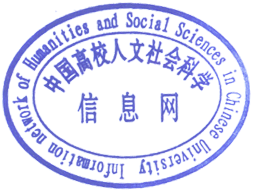关 键 词 :周代;国家结构法制;特点;矛盾学科分类:法学--法律史学
周代的宗法封建制度,其立法初衷在于巩固王权的同时,确立中央与地方分层分权治理的统治秩序。周人通过“制礼作乐”建立起以宗法制和封建制为主要构件的国家结构法制,并以“本大而末小”之原则维系其运行。从国家结构法的角度审视,此种设计以宗法亲缘关系巩固中央权威与央地关系,在克服了前朝制度弊病的同时,蕴含着其自身无法克服的内在矛盾。随着历史的发展,“亲亲之杀”现象日益严重,导致“亲亲”“尊尊”的原则在各层宗法秩序中趋于失效。更为严重的是,日益繁衍的待分封贵胄人众数量不断增长与有限封土之间的矛盾趋于激化,必然导致此种国家结构法制难以为继的局面。周代统治秩序的瓦解,主要来自此种国家结构制度设计上的弊病。
The patriarchal-feudal system of the Zhou Dynasty was originally intended to consolidate the monarchy, and simultaneously establish a ruling order of “the central centralization” and “the local decentralization”. Through the “Li” (ritual) and “Yue” (music) system established by the legislator of early Zhou Dynasty, a patriarchal-feudal state structure legal system was finally arranged and running under the principle called “enhancing the family tree’s root yet controlling the family tree’s branch”. From the perspective of state structure legal system, this design’s purpose clearly consolidated the central government’s imperium and simultaneously enhanced the relationship between the central and local governments with patriarchal kinship. While overcoming the shortcomings of the relevant systems of the previous dynasties, it contains its own insurmountable internal contradictions: along with the passing of time, the phenomenon of “continuous degradation of patriarchal relationship” is becoming more and more serious, which leads to the failure of the principle of “Qin-qin” and “Zun-zun” in patriarchal order. More seriously, the contradiction between the growing numbers of patriarchal nobles had rights to be enfeoffed and the limited fief resources tends to intensify, which will inevitably lead to the unsustainable failure of the legal system of state structure. The collapse of the ruling order of the Zhou Dynasty mainly came from this systemic flaw of such national structure design.

